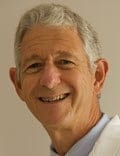
A recent medical scare reminded me of an ancient teaching axiom: “What you do is more important than what you say.”
As an associate professor of neurology, my primary responsibility is to educate medical students and neurology residents. In addition to the occasional didactic lecture, teaching takes place at the hospital and clinic in the form of supervised patient care (think Dr House).
On rounds, I use the Socratic method as we review and refine patient assessments. However, an often-overlooked teaching method, and one that I was recently reminded of, is the power of example.
A few months ago, my voice became progressively hoarse towards the end of the day. As most physicians would, I blithely ignored this potentially serious symptom. However, one morning while shaving, I encountered a marble-sized mass suspended beneath my left mandible. Occam’s razor would suggest that the hoarse voice and neck mass were intimately related, and not in a good way. According to a quick Google search, the most likely diagnosis was a salivary gland tumor, a nasty malignancy that strikes men exactly my age.
Juggling urgent doctor visits and a CT scan of my neck, I continued my teaching duties. One morning, my voice nearly disappeared. In a barely perceptible whisper, I apologized to my team. They would have to carry on their presentations without my usual erudite interruptions.
As we discussed each patient, I would occasionally squeak out a comment or correction, but for the most part, I remained silent. Rounds proceeded quicker without my intermittent pontifications, and the patients still received excellent care.
But as the day progressed, one thing happened that was completely unexpected. The students and residents spoke in lower and lower volumes. By the end of the day, we were all whispering.
Without realizing it, I had set an example.
The following day, I received the welcome news that the CT scan failed to reveal any pathology. The errant mass was indeed my salivary gland. Beleaguered by decades of gravity, its attachments increasingly lax, the gland hung lower than usual. My diminished voice? It seems I share a singular similarity with Jon Bon Jovi, who also suffers from presbyphonia, an age-related deterioration of vocal cord muscles and tissues.
I was thrilled not to have to update my will, but humbled that my drooping salivary gland and presbyphonia were unenviable evidence of advanced age.
I continue to share my enthusiasm for neurology and communicate, perhaps more selectively, with my students and residents. When I lead the team into a patient’s room, I now know that my every action is observed and studied. I strive to set an example worth emulating. Teaching medicine is a weighty but welcome responsibility.
It’s amazing what one can learn from a whisper.
Andrew Wilner is an associate professor of neurology at the University of Tennessee Health Science Center, Memphis, Tennessee, and a seasoned neurologist and epilepsy expert who has mastered the less conventional locum career path. He is the author of four books, including Bullets and Brains, and hosts the podcast “The Art of Medicine with Dr. Andrew Wilner”.
link

